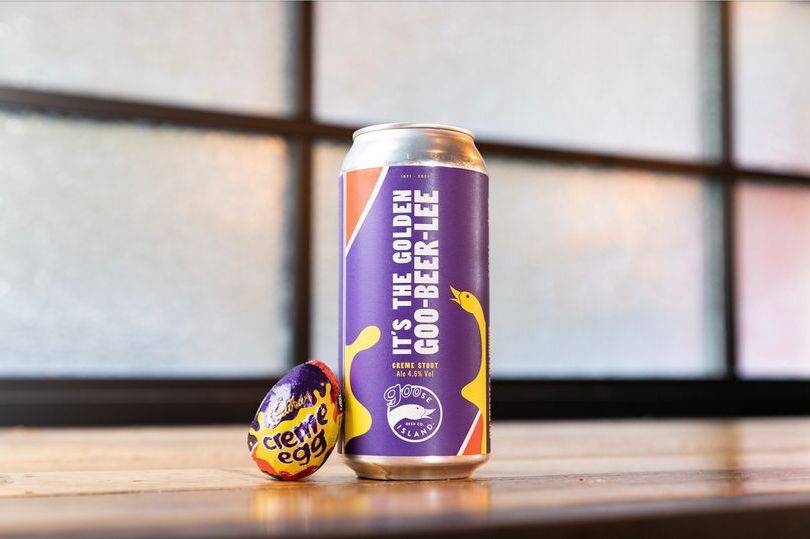Cadbury launches beer that’s designed to taste like a Creme Egg
Cadbury has teamed up with Goose Island Brewery to create an altogether unlikely combination: a beer that has been concocted especially to taste like the confectionary brand’s beloved Creme Egg.

The limited-edition beer, which has been named the ‘Golden Goo-Beer-Lee’, and designed to taste like a Creme Egg, is being launched as a pre-Easter special. Packs of two are being sold to commemorate 50 years of the Creme Egg, and the stout goes on sale today (Wednesday 3 March).
To give the unusual beer its special Creme Egg flavour, makers have added ingredients such as milk sugar, cacao nibs, and vanilla beans.
Goose Island’s Master Brewer, Andrew Walton, said:
“With the Golden Goo-Beer-Lee Creme Stout we knew that we would be reaching a wide range of people with different levels of experience with craft beer! ‘We wanted to make sure that for whoever tried this beer, it would be unique and delicious. The tasty flavours of the stout complement the iconic Cadbury Creme Egg; we wanted to big up the chocolate and creaminess of the beer while keeping it super drinkable.”
Meanwhile, Brand Manager of Cadbury Creme Egg Raphael Capitani added:
Partner Content
“We have always celebrated the unique and wonderful ways of enjoying a Cadbury Creme Egg and with this launch we are taking EATertainment to a whole new level. ‘We can’t wait for people to try our very first beer and raise a glass to five delicious decades of Cadbury Creme Egg!”
A limited number will be available for purchase, with two 440ml cans expected to retail for £10.
Meanwhile in Australia, cans of Bright Brewery’s Pineapple Dream Nitro Milkshake Ale are being urgently recalled from shelves over fears that secondary fermentation may cause them to rupture.




